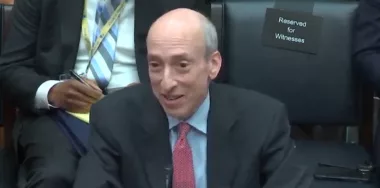| Getting your Trinity Audio player ready... |
The literary world is being taken by storm by Edward Snowden whose new book, “Permanent Record,” is titillating readers with stories of how the U.S. government is routinely invading the privacy of people around the world. As the global super power once again attempts to silence the world’s most public whistleblower, he’s responded in an embrace of Bitcoin.
While the U.S. can’t stop the publication of Snowden’s book, or censor it in ways it would like to, it has figured out an ingenious way to take revenge on his latest attempt to shed light in the darkness. On September 17, the U.S. filed a lawsuit against the man and his publishing partners, hoping to seize all proceeds from its sale.
They did so on the grounds that by not submitting the memoir to either of the CIA or NSA, Snowden’s former employers, he breached his contractual fiduciary obligations and should not profit from the contents within. “We will not permit individuals to enrich themselves, at the expense of the United States, without complying with their pre-publication review obligations,” said Jody Hunt, Assistant Attorney General of the Department of Justice’s Civil Division, in an accompanying press release.
Snowden, who has only sparingly mentioned cryptocurrency in the past, took the new lawsuit as an opportunity to pump Bitcoin as a method to get around these new U.S. sanctions.
in conclusion this is good for bitcoin
— Edward Snowden (@Snowden) September 17, 2019
Before you hurt yourself patting Snowden on the back for this thoughtful evasion of the government, his history of discussing digital currency is not too different than his thoughts on U.S. surveillance.
Much as he thinks his previous work as the CIA and NSA was an invasion of citizen’s privacy, he’s previously said that, while he’s used Bitcoin in the past, he dislikes it’s public and immutable ledger, as it provides yet another way for the government to track citizens. Preferring privacy and perhaps anonymity, he’s shown a preference for Monero and ZCash, two privacy coins.
His suggestion that this whole ordeal is good for Bitcoin is just in that the government can’t regulate digital currency transactions at the moment, and his offramps in Russia are likely to be more lenient than in countries where cryptos are more strictly regulated. It’s unlikely he’s changed his thoughts regarding public blockchains otherwise.
New to blockchain? Check out CoinGeek’s Blockchain for Beginners section, the ultimate resource guide to learn more about blockchain technology.








